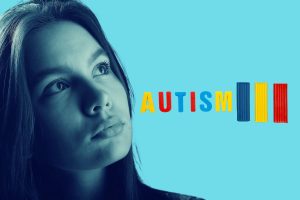

The transition from adolescence to adulthood is a pivotal period marked by a multitude of changes and obstacles. For people on the autism spectrum, this journey can be particularly intricate, involving the navigation of diverse challenges in social, educational, and vocational realms.
In this blog post, we’ll explore the distinctive aspects of transitioning to adulthood with autism, shedding light on the hurdles faced and the triumphs experienced by people on the spectrum.
Table of Contents
Before delving into the challenges associated with transitioning to adulthood with autism, it’s crucial to have a fundamental understanding of Autism Spectrum Disorder (ASD). ASD is a neurodevelopmental disorder characterized by difficulties in social interaction, communication, and restricted and repetitive behavior. Navigating the transition to adulthood becomes a nuanced process due to sensory sensitivities and challenges with routine changes.
If you suspect that you may be on the autism spectrum, a proactive step in your journey to adulthood is taking the autism360’s autism test , providing a helpful self-assessment tool to gain a deeper understanding of your experiences and potential areas of support.
One of the primary hurdles faced by people with autism during the transition to adulthood is adapting to changes in the educational landscape. As they transition out of the school system, they may encounter difficulties adjusting to new environments and expectations. Post-secondary education or vocational training institutions may not readily provide the specialized support found in special education programs.
Addressing this challenge involves implementing inclusive practices within educational institutions and ensuring appropriate accommodations are made. Creating a supportive and understanding environment is vitally important so that people with autism can excel academically and socially during this crucial phase.
Social interactions present another significant challenge during the transition to adulthood for people with autism. Developing and maintaining friendships, understanding social cues, and navigating romantic relationships can be more challenging for those on the spectrum, leading to feelings of isolation.
Interventions like social skills training and peer support programs play a pivotal role in assisting people with autism as they navigate social complexities. Encouraging inclusive social environments and promoting awareness contribute to fostering a more understanding and accepting community.
Securing meaningful employment is a key aspect of adulthood, and people with autism often face unique challenges in the job market. Communication difficulties, sensory sensitivities, and a preference for routines may limit job options. However, many people with autism possess exceptional skills such as attention to detail, excellent problem-solving skills, and a strong work ethic.
Tailored vocational training programs that align with the strengths and interests of people with autism can help to prepare them for the workforce. Employers also play a crucial role in fostering inclusive workplaces, providing the necessary accommodations, and recognizing the diverse talents that people with autism bring to the table.
Developing independent living skills is a crucial aspect of transitioning to adulthood with autism. From managing daily routines to handling finances, people on the spectrum may require targeted support to become self-sufficient. Life skills training programs empower them to navigate daily challenges, fostering confidence and autonomy.
Community-based programs that offer support in areas such as navigating public transport, grocery shopping, and meal preparation can enhance the independence of people with autism. Recognizing and celebrating milestones in independent living is essential for boosting self-esteem and reinforcing a sense of accomplishment.
The transition to adulthood can be emotionally taxing for anyone, and people with autism may be particularly susceptible to mental health challenges. The pressure to conform to societal expectations, coupled with the inherent difficulties of navigating social and professional landscapes, can contribute to anxiety and depression.
Prioritizing mental health support for people with autism during this transition is crucial. Accessible mental health services, coping strategies tailored to their needs, and a supportive network of family and friends can all significantly contribute to promoting overall well-being.
As people navigate the complexities of adulthood with autism, self-advocacy becomes a powerful tool. Armed with a deeper understanding of their own neurodiversity, they can actively participate in shaping their educational, vocational, and social environments. Sharing insights gained from the Autism360’s autism test results can facilitate open communication with educators, employers, and peers, fostering a more inclusive and accommodating atmosphere.
Building a robust support network is equally essential. Friends, family, and community organizations can play a pivotal role in providing encouragement, understanding, and assistance when needed. This network serves as a source of strength, promoting a sense of belonging and reinforcing the idea that people on the autism spectrum can thrive when they’re surrounded by supportive allies.
Transitioning to adulthood with autism is a distinctive and intricate journey that demands a comprehensive approach. While challenges undoubtedly exist, it’s equally important to highlight the strengths, talents, and achievements of people on the autism spectrum.
By fostering inclusive environments, providing targeted support, and raising awareness, we can create a more supportive and understanding society for those with autism who are transitioning to adulthood. Celebrating the diversity and resilience of people on the spectrum contributes to a more inclusive and compassionate world for everyone.
With the ever-evolving beauty industry, makeup trends come and go, but there are a few…
The Dyson Airwrap revolutionized how individuals style their hair. It's the perfect blend of innovation,…
Mother's Day is the day to celebrate the amazing mothers who raised us and took…
Soap nails have been the most trending manicure style of 2025, and it has thrilled…
Ah, prom season—the one marked by sparkling gowns, immaculate tuxes, lifelong memories. But one major…
Acne can be one of the most infuriating skin issues to work with. Whether it's…